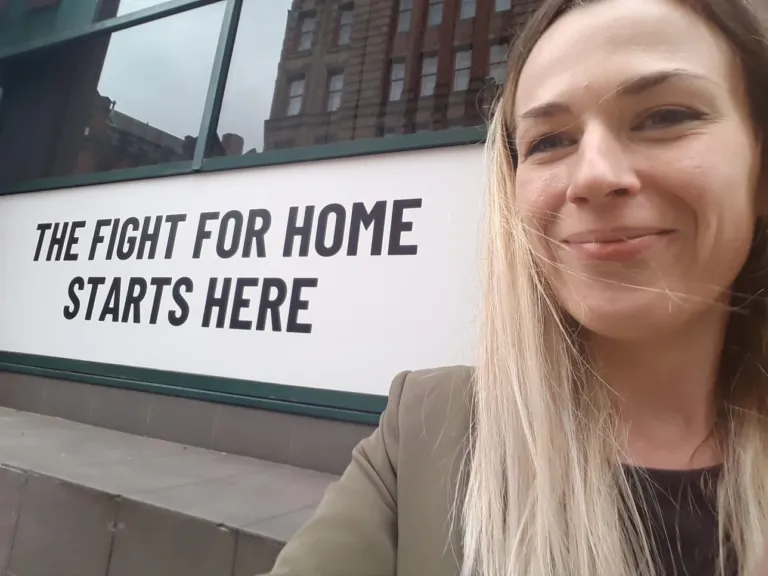‘As much as it’s helped him it’s helped me.’
Published: by Rosie Martin

Catherine Hay is a Volunteer and Training Coordinator at Shelter. She supports a team of 10 volunteer mentors who have lived experience of multiple disadvantages. They provide one-to-one, practical and emotional support to people who are rough sleeping in and around the train stations of Manchester as part of a project funded by Network Rail. Catherine shared a bit about the difference her team have been making throughout the pandemic:
Our mentor volunteers are trained to focus on what is important to the individual client. Sometimes this means offering support attending appointments, with phone calls and paperwork. Frequently mentees want to focus on building confidence, social networks or looking towards their future. Often our mentor volunteers find people who are not sure what they want to do. Living a chaotic lifestyle for decades you can lose sight of what your hobbies and interests really are. Having someone involved who has been through similar experiences is truly powerful. The mentees relate to their mentors, which promotes them to reflect on their own circumstances – in turn inspiring and empowering them to take positive steps forward. Getting to know someone who has been through a similar lifestyle but came through the other side shows the mentees what seems insurmountable and overwhelming is also possible for them. By taking small steps based on the mentees’ individual strengths, celebrating the little things and encouraging people to try new things, anything can be achieved.
Throughout the coronavirus (COVID-19) pandemic, our mentor volunteers have been the bricks and mortar of our service! By providing check-in calls to vulnerable individuals, the pandemic has affirmed what we already knew: sometimes just a phone call and a chat can be life-changing.
Darren, one of our peer mentors, supported six people throughout the pandemic. Here he shares his experience:
‘It’s the isolation, it puts a weight on people. One of the mentees I support, he’s cut off from the world, he only speaks to me and his mother. Every time I call, he says “Thanks for ringing, I was going around the bend today.” I’ve listened and reassured him. That call makes a massive difference to his day. It hasn’t just benefitted him, by phoning and interacting I feel I’m making a difference. It’s occupied me and kept me busy. As much as it’s helped him it’s helped me. I’ve supported him to sign up to an IT course now the restrictions have lifted, he’s starting this week.’
At Shelter_,_ we are so grateful to our volunteers with lived experience. We value their experience, their skills and their understanding. One of our volunteers, Kim, let us know how she sees the value of lived experience: ‘Having been homeless myself at one point in my life, I feel I have some understanding of what people have to go through when this happens to them. I feel volunteering in this role is important. Volunteers can take longer with clients and get to know them a bit better. Sometimes I think they just want someone to listen to them and provide some empathy. I feel that spending an extra ten minutes talking to someone can make a lot of difference both to the client themselves and the way that they view Shelter.’
Catherine has a final message to all our volunteers:
‘This Volunteers’ Week I want say to our volunteers, thank you for your commitment and dedication. Without you, many people would not have been able to access vital support in their time of need – and as a result of that, you have potentially saved many lives. I’m inspired and honoured to work alongside each and every one of you, the difference your contributions make is changing lives across the country.’
‘I can see the amount of clothes that would otherwise end up in landfill, so I know this role is essential’ – hear more from volunteers working in our charity shops.